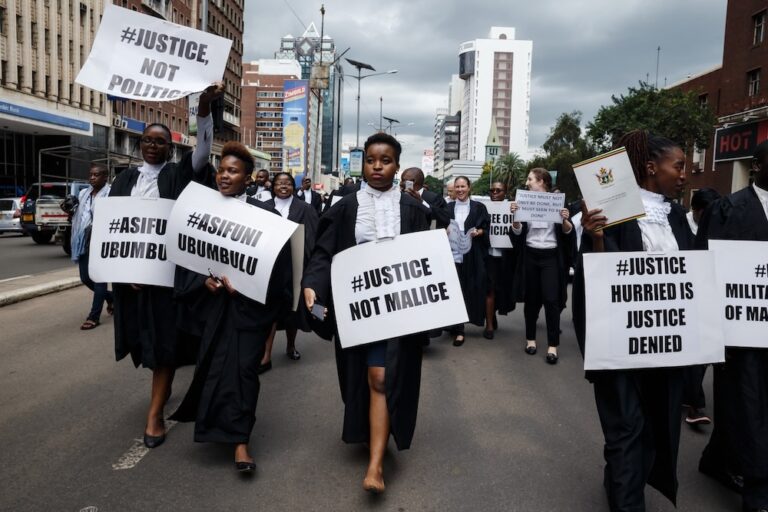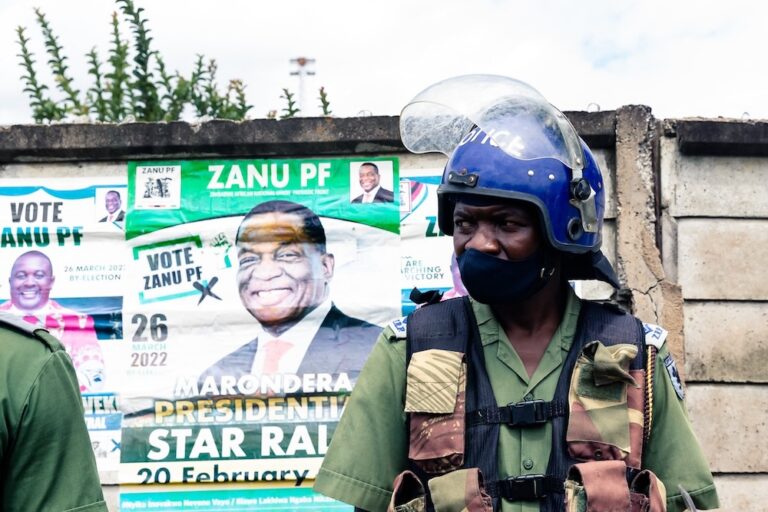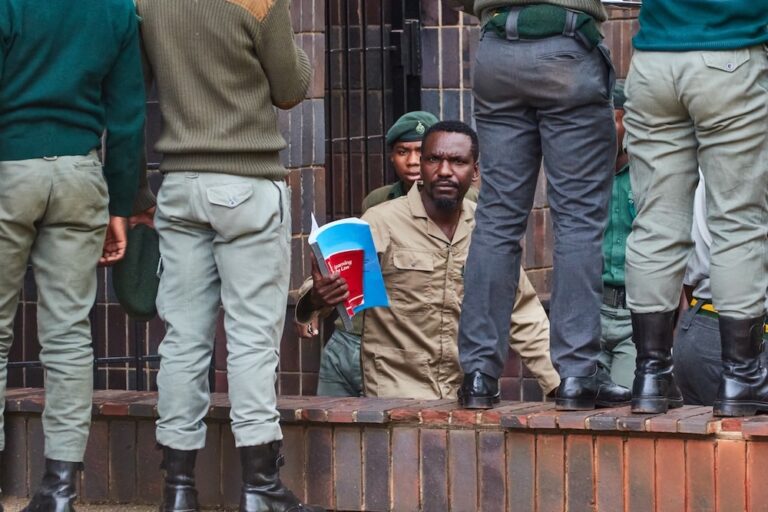(MISA/IFEX) – Geoff Nyarota, editor-in-chief of Zimbabwe’s only independent daily “The Daily News”, was released at around 4:00 p.m. (local time) on 15 April 2002 after being charged under Section 80 Subsection 1 (a) of the repressive Access to Information and Protection of Privacy Act. Nyarota was arrested at around 1:00 p.m. on 15 April […]
(MISA/IFEX) – Geoff Nyarota, editor-in-chief of Zimbabwe’s only independent daily “The Daily News”, was released at around 4:00 p.m. (local time) on 15 April 2002 after being charged under Section 80 Subsection 1 (a) of the repressive Access to Information and Protection of Privacy Act.
Nyarota was arrested at around 1:00 p.m. on 15 April at his offices. He was picked up on allegations of publishing a false news item on the outcome of the controversial March 2002 presidential elections. He stands accused of having falsified information by alleging that Registrar General Tobaiwa Mudede announced contradicting results in the presidential elections in different media outlets. On 10 April, “The Daily News” carried a story entitled “Mudede Tape proves Mugabe lost election”. The story reported that the total number of votes announced by Mudede in a live broadcast as having been polled by all five presidential candidates is 700,000 votes less than the figure subsequently published in other media outlets (see previous IFEX alert of 15 April 2002).
MISA’s Zimbabwe chapter (MISA-Zimbabwe) confirmed that Detective Inspector Makedenge recorded a “warned and cautioned” statement, which Nyarota signed. MISA-Zimbabwe also confirmed that Nyarota denied the charge.
Nyarota is quoted as saying: “I deny this charge. The article is not false, it is based on an audio-visual tape recording of the registrar general as he announced the results of the presidential
elections, broadcast live on radio and television on Wednesday 13 March 2002. I reserve my constitutional right to make a full and detailed statement upon seeing the full particulars of the state’s case.”
Background Information
Section 80 of the Access to Information and Protection of Privacy Act is entitled “Abuse of Journalistic Privilege”. Subsection 1 (a) of Section 80 reads that “a journalist shall be deemed to have abused his journalistic privilege and committed an offence if he falsifies and fabricates information”.
The article in question is not false as it is based on verified media recordings.


